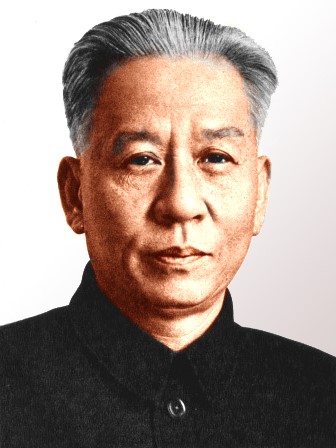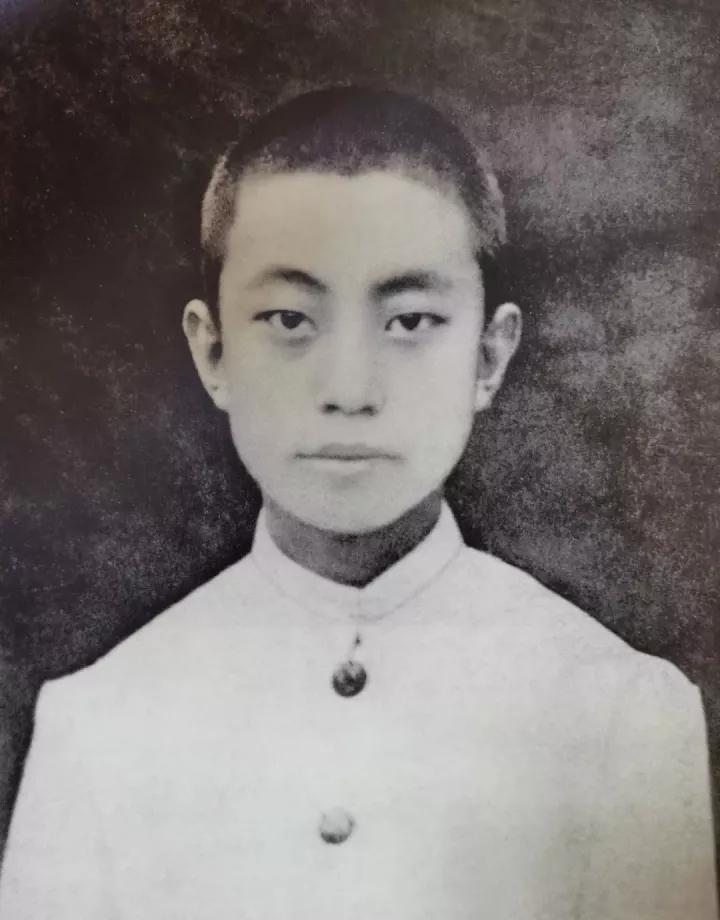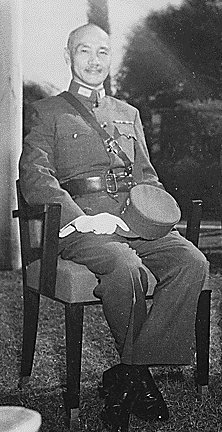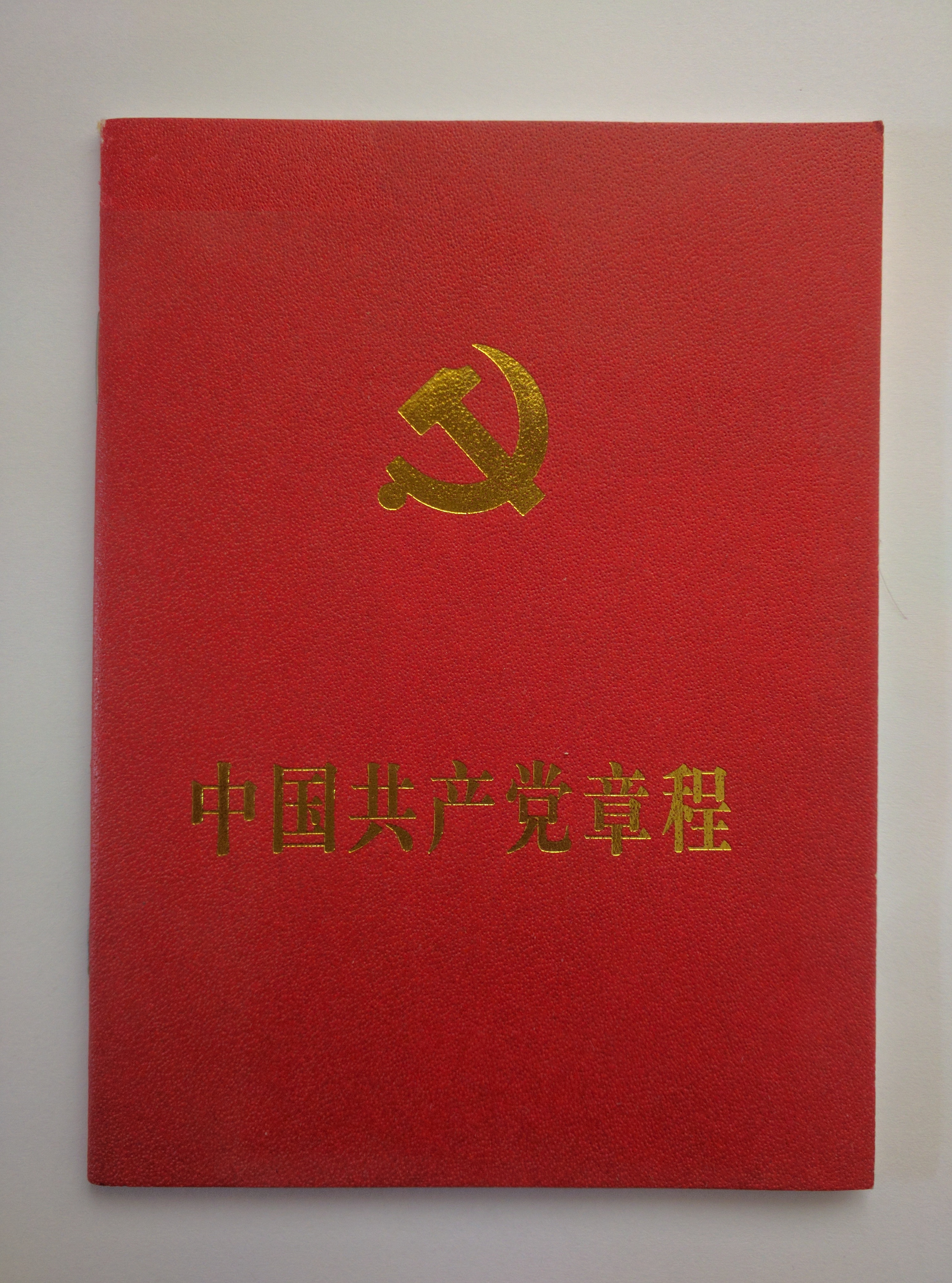|
Chairman Of The Communist Party Of China
The Chairman of the Central Committee of the Chinese Communist Party () was the leader of the Chinese Communist Party. The position was established at the 8th National Congress in 1945 and abolished at the 12th National Congress in 1982, being replaced by the general secretary. Offices with the name Chairman of the Central Executive Committee and Chairman of the Central Committee existed in 1922–1923 and 1928–1931, respectively. History and functions Between 1922 and 1925, Chen Duxiu (still Party Secretary) served as chairman of the Central Executive Committee (), but the name was changed to ''General Secretary of the Central Executive Committee'' in 1925. The post was first introduced in March 1943, when the Politburo decided to discharge Zhang Wentian as General Secretary. As his replacement, Mao Zedong, who had been the ''de facto'' leader of the party since the Long March, was named Chairman of the Politburo of the CCP Central Committee (). The seventh CCP Natio ... [...More Info...] [...Related Items...] OR: [Wikipedia] [Google] [Baidu] |
Emblem Of The Chinese Communist Party
The emblem of the Chinese Communist Party is a stylised version of hammer and sickle. According to Article 53 of the Constitution of the Chinese Communist Party, "the Party emblem and flag are the symbol and sign of the Communist Party of China." History At the beginning of its history, the Chinese Communist Party did not have a single official standard for the flag, but instead allowed individual party committees to copy the flag of the Communist Party of the Soviet Union. On 28 April 1942, the Central Politburo decreed the establishment of a sole official flag. "The flag of the Communist Party of China has the length-to-width proportion of 3:2 with a hammer and sickle in the upper-left corner, and with no five-pointed star. The Political Bureau authorizes the General Office to custom-make a number of standard flags and distribute them to all major organs". On 21 September 1996, the CCP General Office issued "Regulations on the Production and Use of the Communist Party o ... [...More Info...] [...Related Items...] OR: [Wikipedia] [Google] [Baidu] |
Vice Chairman Of The Chinese Communist Party
The Vice Chairman of the Central Committee of the Chinese Communist Party () was the second-highest rank after the Chairman within the Chinese Communist Party (CCP) from 1956 to 1982. The position was phased out after 1982 in order to remove the "Chairman" position from any government posting, resigning it solely to the late Mao Zedong. All vice chairmen were members of the Politburo Standing Committee of the Chinese Communist Party The Politburo Standing Committee (PSC), officially the Standing Committee of the Political Bureau of the Communist Party of China Central Committee, is a committee consisting of the top leadership of the Chinese Communist Party (CCP). Histori .... List of Vice Chairmen {{11th Politburo of the Chinese Communist Party Chinese Communist Party Political history of China Politburo of the Chinese Communist Party Collective heads of government ... [...More Info...] [...Related Items...] OR: [Wikipedia] [Google] [Baidu] |
Hua Guofeng
Hua Guofeng (; born Su Zhu; 16 February 1921 – 20 August 2008), alternatively spelled as Hua Kuo-feng, was a Chinese politician who served as Chairman of the Chinese Communist Party and Premier of the People's Republic of China. The designated successor of Mao Zedong, Hua held the top offices of the government, party, and the military after the deaths of Mao and Premier Zhou Enlai, but was gradually forced out of supreme power by a coalition of party leaders between December 1978 and June 1981, and subsequently retreated from the political limelight, though still remaining a member of the Central Committee until 2002. Born and raised in Jiaocheng, Shanxi, Hua was educated at the Jiaocheng County Commercial School and joined the Chinese Communist Party (CCP) in 1938, seeing action in both the Second Sino–Japanese War and the Chinese Civil War as a guerrilla fighter.Ye Yonglie, 邓小平改变中国——1978:中国命运大转折 (Deng Xiaoping Changed China-1978: China ... [...More Info...] [...Related Items...] OR: [Wikipedia] [Google] [Baidu] |
Lin Biao
) , serviceyears = 1925–1971 , branch = People's Liberation Army , rank = Marshal of the People's Republic of China Lieutenant general of the National Revolutionary Army, Republic of China , commands = 1st Corps 1st Red Army Corps, Chinese Red Army 115 Division, 8th Route Army People's Liberation Army Lin Biao (Chinese: 林彪; 5 December 1907 – 13 September 1971) was a Chinese politician and Marshal of the People's Republic of China who was pivotal in the Communist victory during the Chinese Civil War, especially in Northeast China from 1946 to 1949. Lin was the general who commanded the decisive Liaoshen and Pingjin Campaigns, in which he co-led the Manchurian Field Army to victory and led the People's Liberation Army into Beijing. He crossed the Yangtze River in 1949, decisively defeated the Kuomintang and took control of the coastal provinces in Southeast China. He ranked third among the Ten Marshals. Zhu ... [...More Info...] [...Related Items...] OR: [Wikipedia] [Google] [Baidu] |
Liu Shaoqi
Liu Shaoqi ( ; 24 November 189812 November 1969) was a Chinese revolutionary, politician, and theorist. He was Chairman of the NPC Standing Committee from 1954 to 1959, First Vice Chairman of the Chinese Communist Party from 1956 to 1966 and Chairman of the People's Republic of China, the ''de jure'' head of state, from 1959 to 1968, during which he implemented policies of economic reconstruction in China. For 15 years, Liu held high positions in Chinese leadership, behind only Chairman Mao Zedong and Premier Zhou Enlai. Originally considered as a successor to Mao, Liu antagonized him in the early 1960s before the Cultural Revolution. From 1966 onward, Liu was criticized and then purged by Mao. In 1968, Liu disappeared from public life and was labelled the "commander of China's bourgeoisie headquarters", China's foremost " capitalist-roader", and a traitor to the revolution. He was purged and imprisoned during the Cultural Revolution, but was posthumously rehabilitated by Den ... [...More Info...] [...Related Items...] OR: [Wikipedia] [Google] [Baidu] |
Secretariat Of The Chinese Communist Party
The Central Secretariat of the Chinese Communist Party, officially the Secretariat of the Communist Party of China Central Committee, is a body serving the Politburo of the Chinese Communist Party and its Standing Committee. The secretariat is mainly responsible for carrying out routine operations of the Politburo and the coordination of organizations and stakeholders to achieve tasks as set out by the Politburo. It is empowered by the Politburo to make routine day-to-day decisions on issues of concern in accordance to the decisions of the Politburo, but it must consult the Politburo on substantive matters. The secretariat was set up in January 1934. It is nominally headed by the General Secretary, though the position of "General Secretary" was not always one and the same as the top party leader. Secretaries of the secretariat (''Shujichu Shuji'') are considered some of the most important political positions in the Communist Party and in contemporary China more generally. Each ... [...More Info...] [...Related Items...] OR: [Wikipedia] [Google] [Baidu] |
Long March
The Long March (, lit. ''Long Expedition'') was a military retreat undertaken by the Chinese Red Army, Red Army of the Chinese Communist Party (CCP), the forerunner of the People's Liberation Army, to evade the pursuit of the National Revolutionary Army, National Army of the Kuomintang, Chinese Nationalist Party (CNP/KMT). Strictly speaking, the Long March was a series of marches, as various Communist armies in the south escaped to the north and west. However, the most famous began in the Jiangxi (Jiangxi) province in October 1934 and ended in the Shaanxi province in October 1935. The First Front Army of the Chinese Soviet Republic, led by an inexperienced military commission, was on the brink of annihilation by Generalissimo Chiang Kai-shek's troops in their stronghold in Jiangxi province. The CCP, under the eventual command of Mao Zedong and Zhou Enlai, escaped in a circling retreat to the west and north, which reportedly traversed over over 370 days.Zhang, Chunhou. Vaughan, ... [...More Info...] [...Related Items...] OR: [Wikipedia] [Google] [Baidu] |
Zhang Wentian
Zhang Wentian (; 30 August 1900 – 1 July 1976), also known as Luo Fu (), was a high-ranking leader of the Chinese Communist Party (CCP). Born in Nanhui, he attended the Hohai Civil Engineering School in Nanjing and spent a year at the University of California. He later joined the CCP in 1925 and was sent to study at Sun Yat-sen University in Moscow, from 1926 to 1930. He was a member of the group known as the 28 Bolsheviks, but switched to supporting Mao Zedong during the Long March. He was General Secretary of the Chinese Communist Party from 1935 to 1943, when the post was abolished. He remained a member of the Politburo, but ranked 12th of 13 in the 7th Politburo and reduced to Alternate Member in the 8th Politburo. He was First Vice Minister of Foreign Affairs of the People's Republic of China from December 1954 to November 1960. He was a participant of the Long March, and later served as an ambassador to the Soviet Union from April 1951 to January 1955. At the Lus ... [...More Info...] [...Related Items...] OR: [Wikipedia] [Google] [Baidu] |
Central Committee Of The Communist Party Of China
The Central Committee of the Chinese Communist Party, officially the Central Committee of the Communist Party of China, is a political body that comprises the top leaders of the Chinese Communist Party (CCP). It is currently composed of 205 full members and 171 alternate members (see list). Members are nominally elected once every five years by the National Congress of the Chinese Communist Party. In practice, the selection process is done privately, usually through consultation of the CCP's Politburo and its corresponding Standing Committee. The Central Committee is, formally, the "party's highest organ of authority" when the National Congress is not in a plenary session. According to the CCP's constitution, the Central Committee is vested with the power to elect the General Secretary and the members of the Politburo and its Standing Committee, as well as the Central Military Commission. It endorses the composition of the Secretariat and the Central Commission for Disciplin ... [...More Info...] [...Related Items...] OR: [Wikipedia] [Google] [Baidu] |
Chen Duxiu
Chen Duxiu ( zh, t=陳獨秀, w=Ch'en Tu-hsiu; 8 October 187927 May 1942) was a Chinese revolutionary socialist, educator, philosopher and author, who co-founded the Chinese Communist Party (CCP) with Li Dazhao in 1921. From 1921 to 1927, he served as the Communist Party's first General Secretary. Chen was a leading figure in both the Xinhai Revolution that overthrew the Qing dynasty and the May Fourth Movement for scientific and democratic developments in the early Republic of China. After his expulsion from the CCP in 1929, Chen was for a time the leader of China's Trotskyist movement. Chen's ancestral home was in Anqing, Anhui, where he established the influential vernacular Chinese periodical ''New Youth (Xin Qingnian)''. In order to support overthrowing the Qing government, Chen Duxiu had joined Yue Fei Loyalist Society ( zh, t=岳王會, p=Yuèwáng huì, labels=no) which emerged from Elder Brothers’ secret society ( zh, t=哥老會, p=Gēlǎo huì, labels=no) in Anhui ... [...More Info...] [...Related Items...] OR: [Wikipedia] [Google] [Baidu] |
General Secretary Of The Communist Party Of China
The general secretary of the Chinese Communist Party () is the head of the Chinese Communist Party (CCP), the sole ruling party of the People's Republic of China (PRC). Since 1989, the CCP general secretary has been the paramount leader of the PRC. Overview According to the Constitution of the Chinese Communist Party, the general secretary serves as an ''ex officio'' member of the Politburo Standing Committee, China's ''de facto'' top decision-making body. The general secretary is also the head of the Secretariat. Since 1989, the holder of the post has been, except for transitional periods, the Chairman of the Central Military Commission, making the holder the supreme commander of the People's Liberation Army. The position of general secretary is the highest authority leading China's National People's Congress, State Council, Political Consultative Conference, Supreme People's Court and Supreme People's Procuratorate in the Chinese government. As the top leader of th ... [...More Info...] [...Related Items...] OR: [Wikipedia] [Google] [Baidu] |
12th National Congress Of The Chinese Communist Party
The 12th National Congress of the Chinese Communist Party was convened from September 1–11, 1982, five years before the 13th National Congress of the Chinese Communist Party convened. The path of modernization through socialism was laid out. It was preceded by the 11th National Congress of the Chinese Communist Party. It coincided with the time in which leader Deng Xiaoping was Chairman of the Central Advisory Commission. At the 12th National Congress, Hu Yaobang's report addressed the Chinese diplomatic concept of the Five Principles of Peaceful Coexistence, stating, "China adheres to an independent foreign policy and develops relationships with other countries under the guidance of the Five Principles of Peaceful Coexistence." According to the view articulated by Hu in his report, "China will never be dependent on any big country or group of countries, nor will it yield to the pressure of any big country ..The Five Principles of Peaceful Coexistence apply to our relations w ... [...More Info...] [...Related Items...] OR: [Wikipedia] [Google] [Baidu] |
.jpg)






